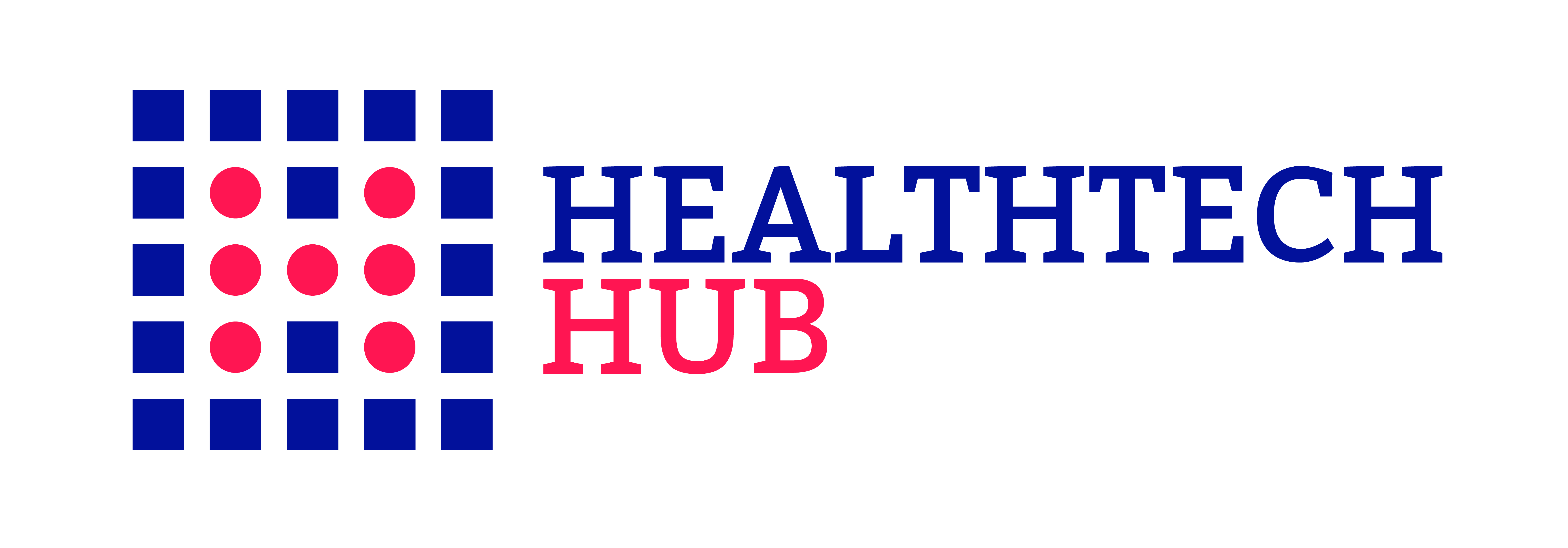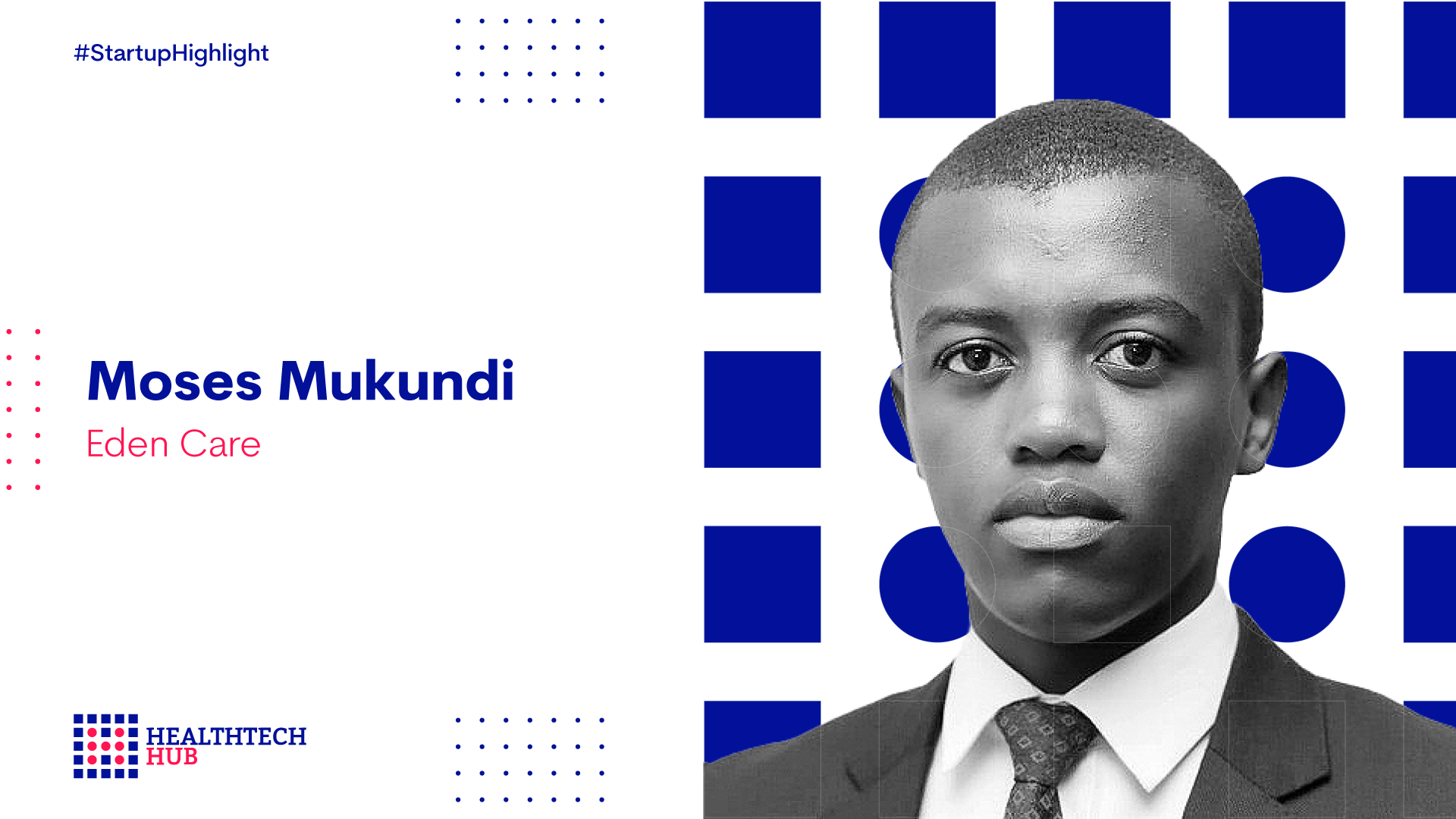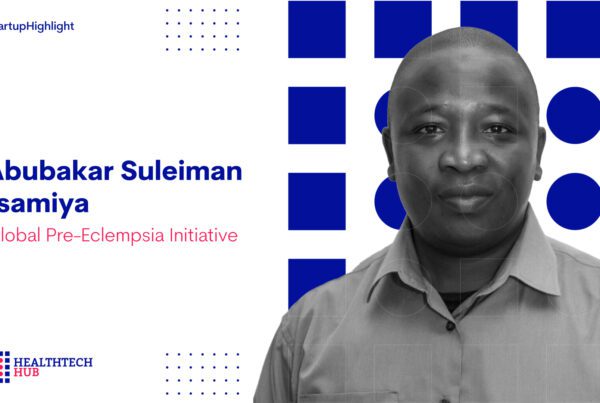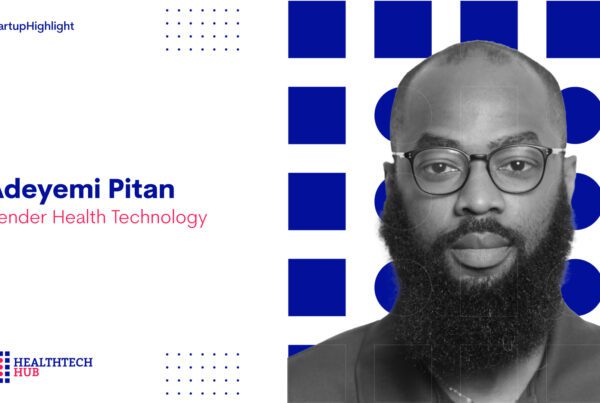Hi, Moses. Thanks for taking the time to do this interview. So, let’s get into it. Please tell us who Mr. Moses Mukundi is and share a bit about your journey as an entrepreneur.
I’m Kenyan, and I’m living in Rwanda now. So, I spent six years in Investment banking and private equity before this. I also founded my first company, an agritech business which we sold to a Chinese company in 2018.
During my time in investment banking and private equity, I got a lot of exposure to insurance companies in general insurance and other insurance companies, financial services, and the healthcare business.
Over time, doing technical due diligence for these companies, it became very clear to me how inefficient they were. On average across Africa, outside South Africa, insurance companies spend about 50% of the premiums on managing the admin piece and admin work for their members.
So, that’s very inefficient compared to 11% in South Africa, and then in 2018, I had an allergic attack when I was in Uganda for work. I nearly died because a doctor forgot to stamp the request letter because one of my insurance companies refused to pay for my airlift. And for me, those are some things that came together. It became clear that there was an opportunity to disrupt this massive industry that no one was paying that much attention to, and being very impervious to technology, would have a large social impact on the African Continent. That’s how we got started.
So, Eden Care, what is Eden Care? Who is it meant for? And most importantly, what is the Eden care story?
Let’s start with the Eden care story. In 2019 I was going to business school, and I had to decide whether to work on Wallstreet or come and do this thing that I have been thinking about for almost the last four years. And I went to business school with a very interesting thought.
I was going to spend my first year doing market research to decide whether it was something I wanted to follow. If, at the end of the first year, I could see signs, there could be something here, and I would leave school and focus on that. But, if not, I was offered a job on Wall Street.
So, I spent my first year missing many classes and flying between places with interesting business models, New York, San Francisco, Brazil, and India, and I also spent a lot of time trying to figure out where to start. So, we spent much of our time in Kenya, Uganda, and Rwanda.
At the end of my first year, I figured out that there was a business model to be built here. I saw how the tech wellness prevention and focus on customer experience would very quickly differentiate us from traditional insurance. Covid also made that decision a lot easier to drop out of Wharton Business school to come and focus on building Eden Care.
So, essentially, Eden Care is a digital health insurance company. Right now, we are starting by focusing on the corporate market. That allows us to build out the scale and the data that will enable us to efficiently target and address them and meet the needs of the middle-income that has outgrown RSSB but has been priced out of that of current private healthcare insurance companies.
That’s our business model, and we are very differentiated from traditional insurance companies by focusing on one customer experience. Two, changing how people experience health insurance at the hospital level, reducing the wait time. We intend to reduce the current two-and-a-half hours of wait time that is related to insurance down to zero, reduce the amount of work that HR teams take in managing healthcare for their teams down from the current four weeks down to about 1.6 percent and overtime, be able to increase the penetration of health insurance currently sitting of about 0.02% to about 2% of the GDP here in Rwanda.
So, you have mentioned corporates. Why corporates?
As a new health insurance company, we don’t have any data, and how you price and do anything with insurance is with data. So, corporate markets are a place where we could very quickly differentiate ourselves from traditional insurance companies and build scale a lot faster which gave us the ability to cross-subsidize as we enter into lower and lower price points into the direct consumer and the SME market.
Thanks for that clarity. Without forgetting, please take us through Eden care’s insurance products and why corporates should choose Eden care as their preferred digital insurance provider.
With Eden care you get a very comprehensive product, you get your inpatient – outpatient maternity, dental and optical cover, and we’ve also built our product at different pricing points with different benefits to allow us to capture as wide a pricing range as we can find out there. So, our products are meant to be cashless. That is, you go to the hospital, use a card, and don’t have to pay anything, and our cover is across East Africa. So if you went to any of our East Africa partners, that may be the Aga Khan hospital in Kenya, Nakasero hospital in Uganda, Aga Khan hospital in India, etc. So, the same card you could use here in Rwanda is the same tap-and-go access that you get across East Africa.
Additionally, we’ve partnered with various hospitals in India where we can send people for cover. The other thing we are doing very differently is focusing heavily on prevention. So, we reward our members for meeting their wellness goals.
For example, a member gets a target to hit 40,000 steps. If they hit those 40,000 steps, they earn points, and they can go to any of our reward partners and redeem that for a free smoothie or coffee. The next iteration will come through the next two months; someone can go to the gym, and every time they go to the gym, they earn points and can use those points to pay for their gym the next month. Additionally, there’s a very heavy focus on the customer experience. We’ve spent a lot of time reducing the wait time of the hospitals and the amount of admin work at the HR level but also making sure that we have a customer care team accessible to all our members.
Digital health insurance is a relatively new concept in Sub-Saharan Africa. How do you plan to make Eden care a household name or brand in the health insurance space?
There are two ways to think about this. First, when a product is still new, make sure that the product works really well so that word of mouth is the primary way for people to know about your product, and that has been the primary focus for Eden care in getting the product out there.
So, it’s a very heavy focus on product-led growth through word of mouth, and people actually try to get to use our product. But also, it’s focusing on members’ education and explaining to people why health insurance is important, finding avenues to leverage existing trust for us to sell our product, and making sure that our brand is visible across the market. So, these are some of the three broad ways where we are taking to increase our penetration of health insurance in this market.
Please take us through the Eden Care road map and what the next 2 -3 yrs look like for you as a company.
Yeah! Certainly, we have a very aggressive growth path in terms of how we want to introduce new products and geographical growth. So, over the next couple of years, we would like to be across the entire East Africa and a couple of other countries outside the East Africa region. Additionally, we need to have expanded to life and general insurance products to provide a one-stop shop for members to access all the insurance coverage from one platform, Eden care.
The insurance industry is quite challenging for any new player to penetrate. What would you say are the top 3 challenges you currently face?
Well, we are a new player in the market, so building trust first is always a challenge. Number two, we are in a very regulated industry that is very capital-intensive. Managing the needs of the regulator with the needs of investors can sometimes put a bit of pressure on a business to balance out the needs of two very critical parts of the business. Finally, I’d say that recruiting and finding the right talent to execute this means that we have to be a global business in terms of how we think about talent and figuring out how to build a singular culture when the team is dispersed around the World.
The Novartis and Norrsken health tech hub cohort of 2021 is ending, and Eden care has been part of this program since its inception. What have been your key highlights during the past year spent in the program?
Yeah, certainly. I think the structured way of approaching investment is important to ensure that it yields through all the various elements of the business. I think that’s something that Novartis and their system built for the program worked well. It’s also beneficial to be in the community of other founders in the trenches with you and the same community. I think that’s extremely helpful in managing the emotional toll that sometimes entrepreneurship can take. The third one has been accessing the experts who bring deep focus in a certain aspect and can bring new perspectives to how we think about the business. Those are the top three things that Novartis brought to the team.
The new 2022 Novartis and Norrsken health tech hub cohort is starting soon. What would be your advice to them as they embark on this journey?
Find the right mentor. I think that’s going to be very important. Spend enough time with the experts that you get access to and I would say the third thing for me would be to be active in the community.
Thanks for doing this interview with us. We shall be keen to tag along as we capture the next steps of your journey.
Fantastic.





